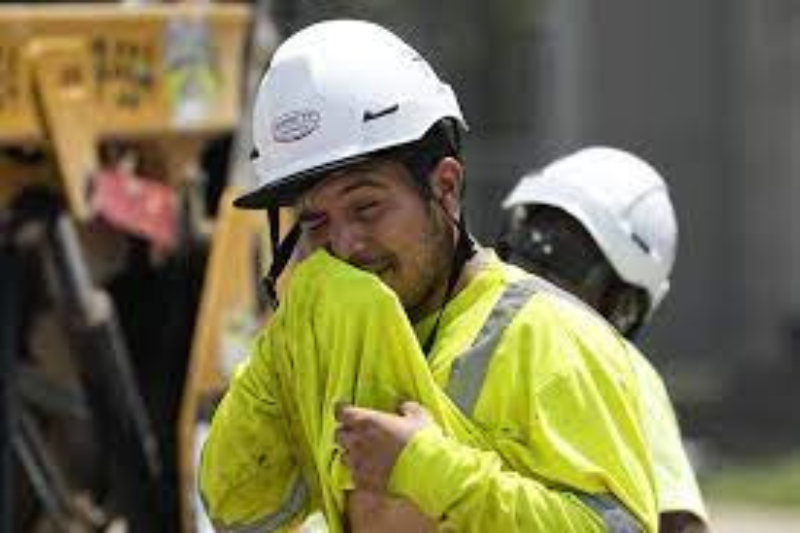

workers in us exposed to extreme heat, risking lives
Hot summers and intensifying heat waves in the US are endangering the lives of millions of workers, whether inside warehouses and kitchens, or outside in the blazing sun. Many of these workers are migrants in low-wage jobs.
Workers in many American states, who are exposed to extreme heat, are ostensibly protected by the general duty clause, which requires employers to mitigate hazards that could cause serious injury or death. State authorities, as per the clause, can inspect work sites for violations. But there are no consistent benchmarks for determining what constitutes a serious heat hazard.
Juanita Constible, a senior advocate from the National Resources Defense Council, said it isn’t always clear as to what’s unsafe. “Without a specific heat standard, it makes it more challenging for regulators to decide, ‘OK, this employer’s breaking the law or not’.”
Ladd Keith, an assistant professor of planning at Arizona State University, highlighted that State and federal governments have long implemented federal procedures for environmental risks exacerbated by climate change, namely drought, flood and wildfires. “But extreme heat protections have generally lagged with “no owner” in state and federal governments. In some ways, we have a very long way to catch up to the governance gap in treating the heat as a true climate hazard.”
Keith said federal experts have recommended extreme heat protections since 1972, but it wasn’t until 1997 and 2006, that Minnesota and California adopted the first statewide protections. And now with heat waves getting stronger and lengthier, state governments are strengthening laws. Katie Hobbs, Arizona Governor, recently announced new regulations through the heat emphasis program and declared a state of emergency over extreme heat allowing the state to reimburse various government entities for funds spent on providing relief from higher temperatures.
The state of Nevada has also implemented a similar heat emphasis program. It will have a separate bill define what constitutes extreme heat and require employers to provide protections. In 2021, the Biden administration introduced a new legislation to develop heat safety standards and strengthen required protective measures for most at-risk private sector workers.
If approved, the legislature would apply to all 50 states and include the private sector and select federal workers.
During the Babcock Fife visit, Chancellor Rachel Reeves raised UK export finance program funds by £2 billion. The new funding…
In a major decision, Tamil Nadu Finance Minister Thangam Thenarasu presented a new scheme in the state’s 2025-26 budget through…
Tesla started operating 224 driver trainers with 104 vehicles under its autonomous driving test permit in December in California. In…
Judge William Alsup finds federal government should restore positions to all probationary workers whose employment ended unlawfully. On Thursday a…
The UK government has brought in new regulations for employing staff within the care industry. From April 9, 2025 care…
Afghan migrants deported from the United States to Panama now face an uncertain future. Many of these deportees feel stranded…
This website uses cookies.
Read More